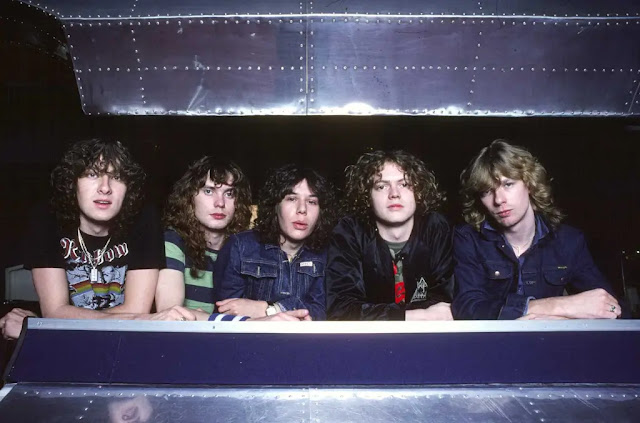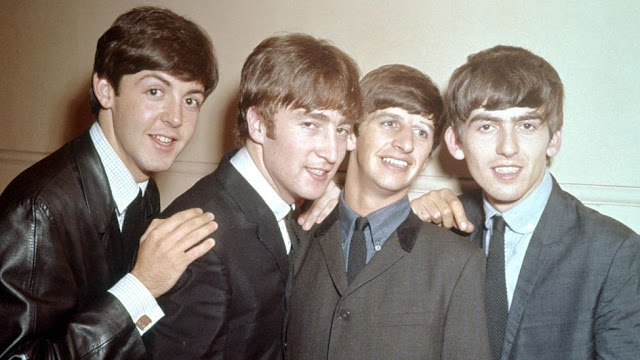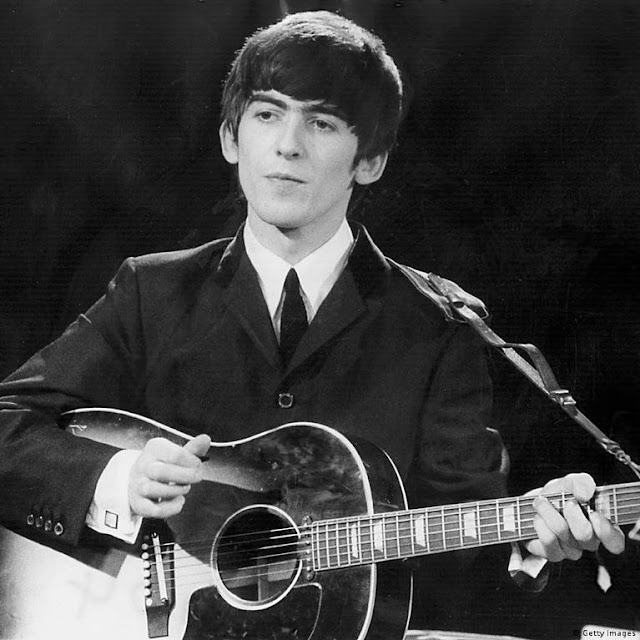Heavy-hitting legends: Turbo
Turbo is not just a band. It is a phenomenon on the Polish music scene that has been arousing emotions, inspiring generations and defining the heavy metal genre in Poland for over four decades. Founded in 1980 in Poznań by Wojciech Hoffmann and Henryk Tomczak, the band quickly gained recognition thanks to its innovative music and uncompromising lyrics. In its long career, Turbo has gone through many transformations, changing its lineup and even its musical style, but has always remained true to its roots. In this article, we will look not only at the band's history and discography, but also at the impact Turbo has had on musical culture and society, making them undisputed legends of Polish metal.
The beginnings of the legendary group:
The band Turbo was founded in 1980 in Poznań, when guitarist Wojciech Hoffmann and bassist Henryk Tomczak decided to create a band that would define new sounds in Polish rock music. From the very beginning, their music was characterized by strong guitar riffs and dynamic vocals, which quickly attracted the attention of lovers of strong sounds.
"Dorosłe Dzieci" (1983) – Voice of youth and rebellion:
The album "Dorosłe Dzieci" is one of the most significant releases in the history of Polish heavy metal, released in 1983. It is the quintessence of youthful rebellion and deep frustration, characteristic of the period of martial law in Poland. Filled with energy and raw sound, this album gained cult status, primarily thanks to its uncompromising, socio-political lyrics.
Songs such as the title "Adult Children" or "Appearing Life", "Crazy Icarus" not only reflected the spirit of the times, but also constituted a form of protest against the realities of the time, offering the young generation a voice that they could consider as their own. Musically, the album balances on the border of heavy rock and metal, with characteristic guitar riffs by Wojciech Hoffmann and the expressive vocals of Grzegorz Kupczyk.
"Smak Ciszy" (1985) – Maturation of sound:
Two years later, in 1985, Turbo released "Smak Ciszy", an album that in many ways was a departure from the direct aggression of "Adult Children". Although still in the heavy metal convention, it brought more diverse sounds and introspective lyrics, which showed the band's maturing both musically and lyrically.
"Taste of Silence" explores deeper, more personal themes such as loneliness, the search for meaning and inner peace. The album's title track, "Smak Ciszy", is a melancholic, reflective hit that has become one of the band's most recognizable songs. Musically, the album is characterized by greater maturity and subtle composition, which shows Turbo's evolution from the rawness of the first recordings to a more refined style.
"Kawaleria Szatana" (1986) – A turning point in Polish metal:
The album "Kawaleria Szatana", released in 1986, is often considered one of the most important achievements in the history of Turbo and Polish heavy metal. This release not only strengthened the band's position on the musical map of Poland, but also turned out to be groundbreaking in musical and lyrical terms.
The music on "Satan's Cavalry" is much more complex and technical compared to previous albums. This album is characterized by fast, technical guitar riffs, powerful drum parts and deep, dark lyrics. Songs such as "Satan's Cavalry" become anthems of youth rebellion, and their strong messages criticize the society and politics of that time.
"Ostatni Wojownik" (1989) – Maturation and Change:
Three years after the release of "Satan's Cavalry", Turbo returns with the album "The Last Warrior" (1989). This album continues the musical and lyrical complexity of its predecessor while introducing new elements to the band's sound. "The Last Warrior" shows more diversity in musical style, mixing heavy metal with more melodic, almost rock elements.
The lyrics on "The Last Warrior" are more introspective and philosophical, reflecting on life, death and human existence. Songs such as the title track "The Last Warrior" and "Sword of Beruda" reflect deep thoughts and personal emotions, which is a testament to the band's maturity as creators. This album also stands out for its production, which allows each musical element to resonate with full force.
"Epidemic" (1989) – Forgotten Chapter in Turbo Discography:
"Epidemic" is an album that often remains in the shadow of Turbo's more famous works, such as "Satan's Cavalry" or "The Last Warrior". Released in 1989, shortly after The Last Warrior, it is a work that shows the band exploring slightly different musical territories, but without completely straying from their characteristic heavy sound.
Musical exploration and themes:
The album "Epidemic" differs from its predecessors with a greater emphasis on faster tempo and more aggressive guitar riffs, which can be seen as the band's response to the growing popularity of thrash metal on the global music scene. On this album, Turbo is not afraid to experiment, introducing elements that may surprise fans accustomed to the band's classic heavy metal sound.
Lyrically, "Epidemic" tackles social and personal topics with a more direct and raw approach. A song like "Epidemic" reflects the anxieties of the end of the Cold War, as well as broader concerns about humanity's future in the face of global threats.
Reception and impact:
Reception of "Epidemic" was mixed upon release. Some critics and fans considered the album a bold step forward, while others missed the more melodic and reflective style of previous albums. Still, "Epidemic" holds its own niche among Turbo's collection, offering a unique insight into the band's evolution in the late 1980s.
While "Epidemic" did not achieve the status of some of Turbo's other albums, it has gained recognition over the years as an important addition to the band's discography. This is a work that shows Turbo as a band not afraid of changes and ready for musical challenges, even if these were not always met with universal applause.
"Dead End" (1990) – A new direction in difficult times:
The 1990 album "Dead End" finds Turbo in a period of significant transformation, both internally and externally. This album is a reflection on the changing musical landscape, as well as the band's internal struggles to renew their sound and approach. Turbo, trying to adapt to the new realities of the music market and listeners' tastes, explores various musical genres on "Dead End", mixing elements of traditional metal with new influences.
"One Way" (1992) – In search of identity:
Two years later, the band continues its musical journey with the album "One Way", which can be read as a further search for identity and an attempt to define their place at the beginning of the new decade. "One Way" presents Turbo in a more mature version, with attempts to synthesize his previous musical experiences with new inspirations and trends. This album proves the constant evolution of the band, which is constantly looking for new means of expression, although it does not always easily find a clear direction.
Impact and context:
Both albums, "Dead End" and "One Way", illustrate the changing face of Turbo and the challenges musicians faced in the 1990s. During this period, the band faced pressure to adapt to a market that was increasingly dominated by other musical genres, such as grunge or alternative rock, which deviated from classic metal.
These albums are also a testament to the difficulties many bands face trying to remain relevant in an ever-changing music world. Turbo, although experimenting with different approaches and styles, was not always understood by its fans, which is often the fate of bands striving for innovation.
Turbo in the new millennium: from "Avatar" to "The Fifth Element":
"Avatar" (2001) – Back to the roots:
"Avatar", released in 2001, was something of a renaissance for Turbo. After the experimental 1990s, this album was a return to the heavier, more metal sound that made the band famous in the 1980s. With "Awatar", Turbo regained some of its former energy, presenting music that combined traditional metal sounds with modern arrangements. This album was important not only because of the music, but also as a symbolic return to form after a difficult period of change.
"Tożsamość" (2004) – Definition of a new stage:
Three years later, "Identity" continued the line started by "Awatar", while further developing and establishing the band's new sound. This album attempted to synthesize the various musical elements that Turbo had explored over the previous decades, from heavy metal to more melodic and reflective themes. "Identity" showed that Turbo is not only back in the game, but is also ready to constantly evolve and search for new means of expression.
"Stażnik Światła" (2009) - Exploration and maturity:
Released in 2009, "Guardian of Light" sees Turbo in the next phase of his artistic journey. This album is characterized by greater maturity in lyrics and compositions, with a clear emphasis on thoughtful, often introspective content. "Guardian of Light" is an example of how Turbo, although rooted in heavy metal, is able to effectively weave philosophical and poetic elements into its music, which proves the depth and development of the band.
"Piąty żywioł" (2013) – Modernity and innovation:
"Fifth Element" from 2013 is a further expansion of Turbo's musical horizon. This album combines heavy metal sounds with modern production techniques, which allows for a fresh and dynamic result. The band not only maintains their trademark energy, but also demonstrates that they are still able to innovate and adapt to a changing musical landscape.
To sum up:
Turbo's career spans over four decades of evolution, challenges and successes. From its strong beginnings in the 1980s, through the difficult 1990s, to its triumphant return and permanent place in the pantheon of Polish metal, Turbo remains a symbol of passion, perseverance and a constant desire to explore musical boundaries. Turbo has not only stood the test of time, but has also defined and continues to define the Polish music scene, being not only a witness, but also the creator of its history.




Komentarze
Prześlij komentarz